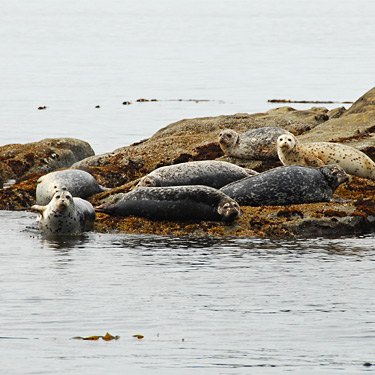our technology
The process of identifying areas of high conservation value can involve an extraordinary amount of labour and data. This is particularly the case when analysts use many layers of mapped information to seek options that balance biodiversity and socioeconomic considerations.
An analysis of this type requires accounting for multiple species, habitats, oceanographic factors, and resource uses across a wide geographic area. The volume of data and computations required can quickly overwhelm anyone without the aid of computers and special software to handle the challenge.

photo by Vera Bogaerts
Marxan, a decision support tool developed by the University of Queensland, has gained global recognition as one of the best tools to meet these challenges. Based on simple mathematics, Marxan uses the computer to search millions of potential solutions to find the best balance of costs and benefits. It has been instrumental in creating conservation based economies around the world (see examples below).
The success of Marxan has been due to its flexibility, computational capacity, scientific defensibility, transparency and its ability to minimize the overlap of areas identified for potential conservation with other users. Marxan allows users to define parameters and inputs that drive an analysis. In this way, different scenarios can be run to provide a wide range of options and not just a single solution.
This improves the likelihood of identifying options that maximize conservation interests while minimizing negative economic, social or cultural impacts. The development of conservation strategies is largely socio-political. Therefore, options generated by Marxan are not intended to replace decision making but rather provide a scientifically defensible starting point for discussions amongst decision makers and user groups.
BCMCA and The Pacific Marine Analysis and Research Association (PacMARA) hosted a workshop on the use of Marxan for the BCMCA analysis, May 2009 at the University of British Columbia. It was attended by 29 invited experts and observers from Australia, Alaska, California, Oregon, Washington, Colorado, Washington DC, Victoria and Vancouver. The attendees included government staff, university researchers, graduate students, NGO staff, Marxan consultants, professional economists and climate change scientists. Five BCMCA Project Team members and all three BCMCA staff participated in the workshop. The workshop report is available: Marxan Workshop Workshop Proceedings Report, June 2010 (PDF).

photo by Emrys Miller / Rocketday
The following links provide examples where Marxan or its predecessor (SITES) was instrumental in the creation of marine plans:
- The Californian Marine Life Protection Act (MLPA) released a lessons learned report that includes the context, process, and outcomes and an evaluation of each. They used Marxan and collected and mapped data from many fishermen to represent the socio-economic costs. Unlike the BCMCA, this was a government lead planning process and the intended outcome is MPAs.
- Baltic Sea Management – Nature Conservation and Sustainable Development of the Ecosystem through Spatial Planning (BALANCE) (website). This link leads to spatial planning efforts using Marxan in the Baltic Sea region, and a wealth of resources in the publications section.
- Great Barrier Reef, Australia (website)
- Channel Islands, USA (website)
- Florida Keys National Marine Sanctuary (website)
Learn more on the Marxan website.
